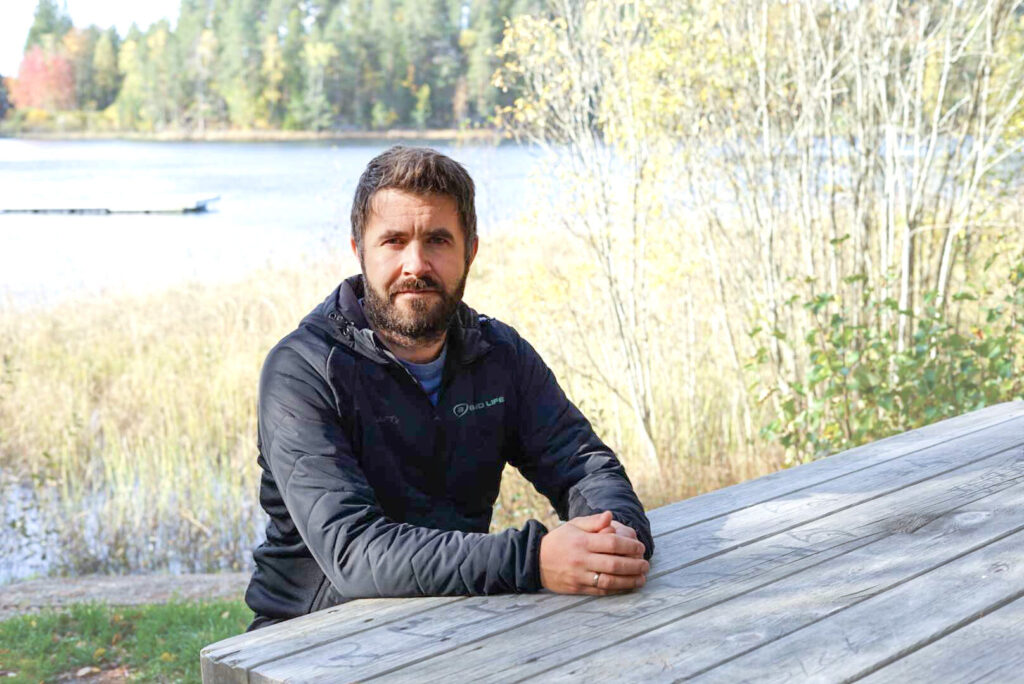When life is coming to an end, it is not only the illness that affects everyday life. The family, the time, the closeness and the small moments that mean more than anything else. For Mads, this became especially clear when his father, an active and fun-loving man, was diagnosed with pancreatic cancer and quickly became bedridden in the time before he died.
During this period, Mads learned what palliative care really means in practice: not only pain relief and medical follow-up, but also measures that provide dignity, calm, and the opportunity to be present – until the very end.
This is the story he now chooses to share, with the hope that other relatives can find support, insight and perhaps a little hope in the midst of a difficult situation.
From diagnosis to everyday life abruptly changed
When Mads’ father was diagnosed, it was like a rug was torn away from under the whole family. Pancreatic cancer is known to be aggressive and difficult to detect early. Within a few weeks, the father went from being upright to being completely bedridden. The symptoms of the cancer – intense pain, exhaustion, nausea and loss of appetite – made it difficult for him to participate in everyday life.
The nursing staff did their part to relieve pain and provide medical support. For the family, however, it became clear that even with good medication, one thing continued to be a challenge: the father’s comfort in bed. He lay still for long periods of time, and his body could not tolerate it. The pain increased, and the staff had to turn him often to prevent pressure ulcers and increase comfort. But the twists and turns were painful for him and each movement triggered new discomfort.

Tidewave came into the picture
At first, Mads’ father was skeptical. How could a mattress make a real difference? But it did. And he noticed that already on the first day.
Tidewave worked by gently moving the father from side to side throughout the day and night – all without the need for him to be lifted or turned manually by the caregivers. This small, continuous movement reduced pain, made breathing a little easier, and gave his father a rest he hadn’t had in a long time.
What surprised the family the most was the psychological effect. When his father finally got some kind of comfort and calm, he relaxed more – and could be more present mentally. He was awake for long periods, could cope with short conversations, and could spend time with his grandchildren who came by to hold his hand.
Read how it works here.
The last days – quality time that means everything
Mads says that the time with his father in the last few days was something completely different from what he had prepared for. Instead of the staff having to come in several times an hour to adjust position and deal with pain, the room was filled with a calm that had previously been absent.
The grandchildren could sit on the edge of the bed with grandfather. They could show drawings, tell stories and just be present. This time – these small moments – is what in retrospect means the most to the family.
Mads says this about Tidewave in palliative care:
“Tidewave immediately brought a sense of calm to our father, but also to our family. We also saw that it relieved the healthcare personnel and cancer nurse who were present.”
Palliative care is about more than medication
Mads’ story illustrates something important: Palliative care is holistic. Drugs are one part, but anything that affects the patient’s comfort and quality of life has enormous value.
It can be small measures such as good nutritional support, warm hands, music in the room or as in this case – a mattress that gives the body peace.
Technology in palliative care is not necessarily to prolong life, but to improve life in the time that remains. When the pain is reduced and the patient gets more rest, the family also gets more time together, which actually feels like time – not just care work.
This is the value of palliative care at its best:
“The patient retains dignity”
“Next of kin are given room to be family, not just caregivers
“The last days can be filled with closeness and tranquility
The Tidewave mattress can be searched via NAV Assistive Technology Centre.
A story shared to help others
Mads has chosen to share his experience precisely because he knows how helpless you can feel as a relative. He wants others who are in the same situation to know that there is help, support and solutions that can make a difference – even when life is at its most vulnerable.
Therefore, he also recommends watching the video that was made about his father’s story, where you can hear more about his story as a relative. It provides a warm and honest insight into what palliative care can look like in practice, and which small measures can have a big effect.
